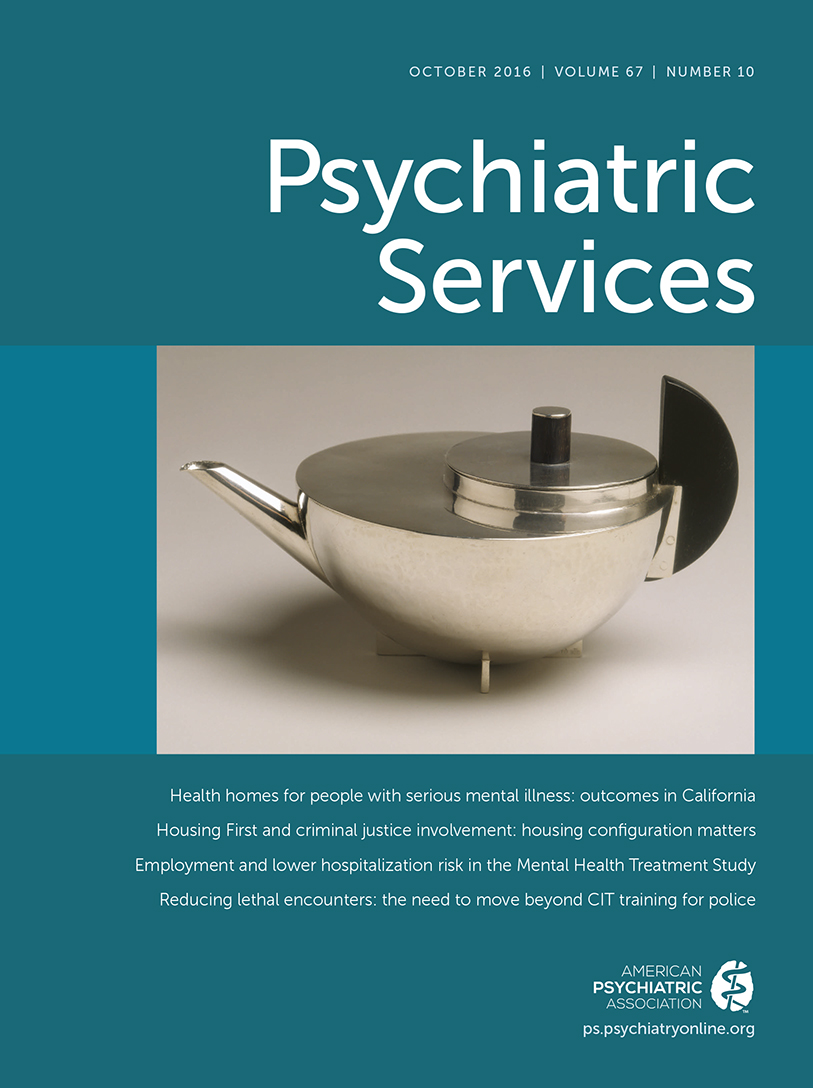Electronic Psychiatric Consultation in Primary Care in the Safety Net
In the U.S., most people with mental illness do not get adequate treatment, primarily because they lack access to care. Many primary care clinics within a safety-net setting (providing services to uninsured patients, Medicaid enrollees, or especially vulnerable patients) lack the resources to fully embed psychiatric specialists in their practice settings. To provide timely access and appropriate triage for a broad array of specialty services, Zuckerberg San Francisco General and the University of California, San Francisco, created eReferral, a Web-based referral and consultation system. The system facilitates communication and coordination among primary care practitioners (PCPs) and specialists, with the goals of enhancing primary care capacity and improving access to specialty care. PCPs initiate specialty referral and consultation requests through the eReferral portal (housed in the existing electronic medical record [EMR]). Specialists review and respond to each request. eReferral has decreased wait times for specialty care visits through increased comanagement of care with PCPs. Although similar models have been used effectively in dozens of specialty services across the country, these types of programs have yet to be described for psychiatric care.
We examined the feasibility and acceptability of implementing a psychiatric eReferral program in a publicly funded, community-based primary care clinic in San Francisco staffed by eight PCPs. This clinic is open to pilot projects and was an early adopter of a new EMR with embedded access to the eReferral platform. The consulting psychiatry team (a primary psychiatrist and assistant licensed therapist) reviewed the consultation requests and identified the patients who could benefit most from a psychiatric visit so they could be scheduled to see a part-time psychiatrist at the clinic. For patients who might benefit from comanagement with the eReferral specialist, PCPs received a response to the consultation request through the eReferral portal.
In the four-month evaluation period, >3,000 primary care visits occurred and 42 consultation requests were initiated. PCPs usually received a response within three business days. Patients’ ages ranged from five to 69 years (M=45). Diagnoses included depression, anxiety, or both (50%), and a smaller portion (5%−10%) had insomnia, psychosis, substance abuse, attention-deficit hyperactivity disorder, a bipolar disorder, or other conditions (including eating disorders).
Most consultation requests (21 of 42) concerned medications: initiation of a new medication, contraindications, changing medication, or general medication questions. Of these consultations, most discussed antidepressants. Others concerned antipsychotics, benzodiazepines, stimulants, and other medications. Nonmedication-related consultation requests included questions about diagnostic clarification or psychosocial issues.
In about half of the consultations (23 of 42), PCPs requested that the patient be seen by the on-site psychiatrist. The psychiatry reviewers deemed most requests appropriate and recommended scheduling. The on-site psychiatrist saw most of those patients (some patients did not show, preferred to follow up with a PCP via telephone, or were never scheduled because they could not come on the day the psychiatrist was available). Some were referred to an outside provider (a crisis clinic, for example).
The psychiatry reviewers initially responded to the PCP without scheduling the patient in 71% of cases (N=30 of 42). Half of these (N=15 of 30) included a recommendation for the patient’s treatment to be managed by the PCP, with detailed, supportive responses to PCPs’ inquiries to promote learning and expansion of PCP capacity. The other 15 consultations were scheduled after iterative communication between the PCP and the specialist team. Nearly 30% (N=12 of 42) of requests were recommended for scheduling by the psychiatrist without further discussion with the PCP.
PCPs found the service helpful for “improving understanding of psychotropic medication management” strategies. Most expressed satisfaction with the program, but for scheduling, some saw the eReferral system as an “extra step” compared with scheduling directly with an on-site psychiatrist.
Findings highlight feasibility and acceptability of implementing an integrated electronic psychiatry consultation and referral service in a community-based primary care clinic. This pilot program can inform future trials designed to examine the impact of this type of service on the delivery of high-quality mental health care and its cost-effectiveness in a safety-net health care system.



